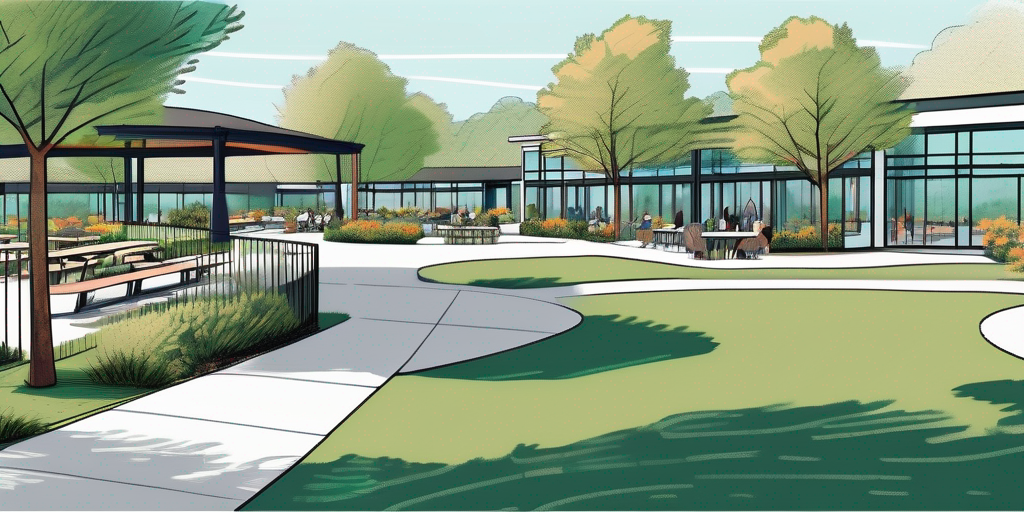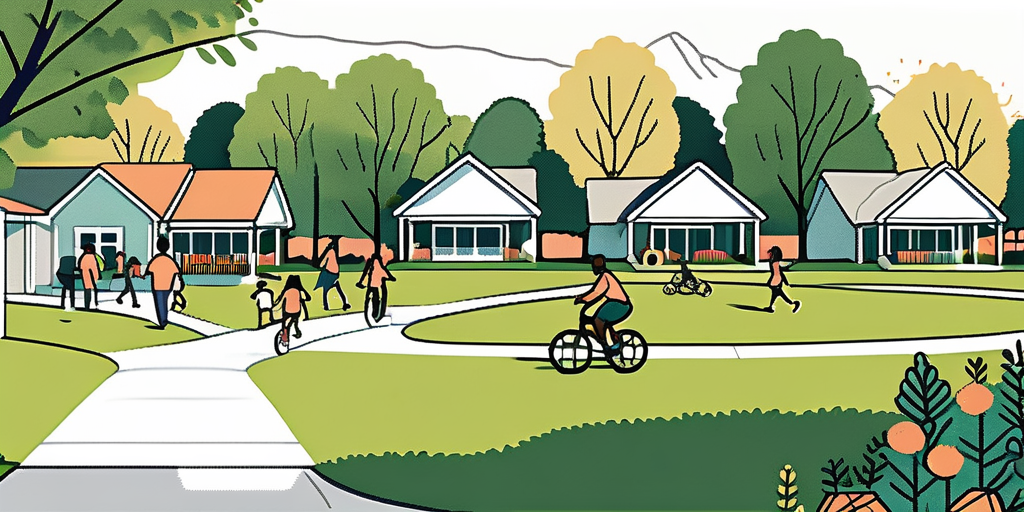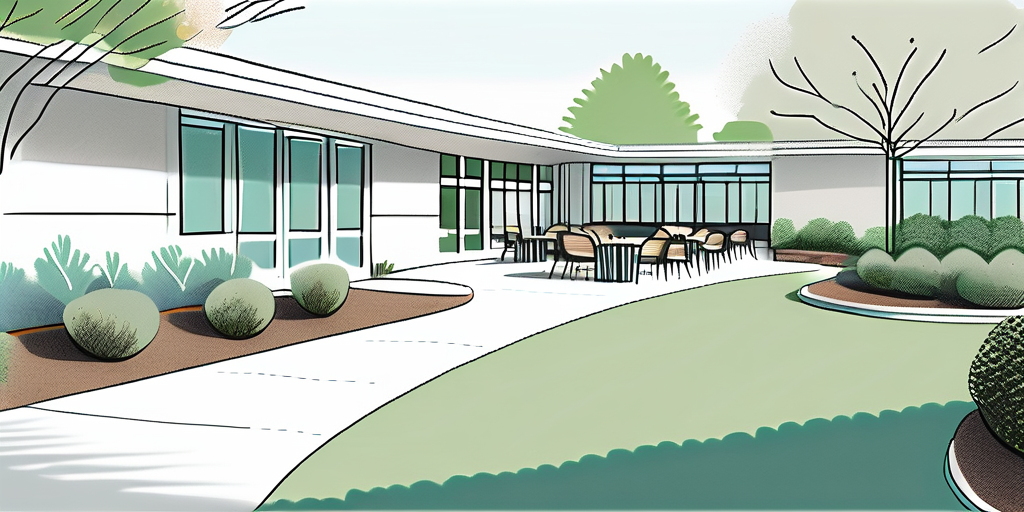
Community plays a vital role in shaping family life, particularly in places like Tennessee National, where the intertwining of community and family can significantly enhance the quality of life. This article explores the various dimensions of community in Tennessee National and how they influence family dynamics. Through an understanding of community aspects, we can better appreciate its impact on families and individual members of those families.
The concept of community is multifaceted, enriched by social relations, shared spaces, and collective activities that create a sense of belonging. In Tennessee National, community is not merely a geographical term; it embodies the spirit of cooperation, shared experiences, and mutual support among its residents.

In a broad sense, a community encompasses the people, relationships, and institutions that shape the lives of individuals. According to sociologists, communities can be defined by geographic boundaries, shared interests, or cohesive social networks. In Tennessee National, this broad definition takes a more defined shape, as residents engage through local events, service projects, and neighborhood gatherings that foster connection.
Moreover, the idea of community transcends physical proximity, as the dynamics of modern life introduce various ways of interacting and forming bonds. From online groups to local clubs, the essence of community now combines traditional values with contemporary modes of communication. This blend allows residents to stay connected even when they are physically apart, ensuring that friendships and collaborations thrive in a digital age.
Tennessee National boasts unique characteristics that differentiate its community from those in other regions. One standout feature is the emphasis on family-centric events and activities that reinforce family bonds. Seasonal festivals, cultural days, and community fairs provide opportunities for families to engage, collaborate, and celebrate their heritage together. These gatherings not only serve as a platform for entertainment but also as a means to share stories, traditions, and values that have been passed down through generations.
Furthermore, the community's commitment to volunteerism creates a culture of giving back. When families participate in community service, they not only contribute to the well-being of others but also teach younger generations the value of empathy and responsibility. Initiatives such as neighborhood clean-up days, food drives, and mentorship programs highlight the collective effort to uplift one another. This sense of duty to the community fosters a deep-rooted pride among residents, as they recognize their role in shaping a supportive and thriving environment for all. Additionally, these acts of service often lead to lasting friendships and partnerships, reinforcing the interconnectedness that defines Tennessee National's vibrant community.
Communities have an undeniable influence on family life, often serving as a support network that families can rely on during times of need. In Tennessee National, the dimensions of local culture and values are palpable, impacting how families interact and raise their children.

Community activities serve as a catalyst for family bonding. Events such as potlucks, outdoor movie nights, and sporting events create settings where families can unwind, socialize, and strengthen familial relationships. These experiences foster communication and shared memories, which are essential to building resilient family units.
Through participation in community sports leagues or arts programs, families learn cooperation and teamwork, lessons that are vital in nurturing strong interpersonal skills among children. Consequently, these communal activities elevate the importance of shared experiences within the family, reinforcing their bonds. Additionally, community events often introduce families to new traditions and cultural practices, enriching their lives and providing a sense of belonging. For instance, seasonal festivals can become cherished family traditions, where families look forward to participating together year after year, creating a tapestry of memories that binds them closer.
Support systems within communities are crucial in promoting family well-being. In Tennessee National, families benefit from various resources, including parenting workshops, childcare co-ops, and counseling services. These initiatives help families navigate challenges by providing guidance and resources they may not have access to otherwise.
The connectedness within the community also means that families can easily share responsibilities such as babysitting or carpooling, which eases the logistical burdens of daily life. Such systems highlight the collaborative spirit present in Tennessee National, creating an environment where families can thrive. Furthermore, the presence of local organizations dedicated to family welfare, such as food banks and health clinics, ensures that families have access to essential services. This network of support not only alleviates stress but also fosters a culture of empathy and understanding, where families are encouraged to seek help without stigma. In this way, the community acts as an extended family, reinforcing the idea that no one has to navigate life's challenges alone.
Communities play an integral role in the development of children, providing them with essential resources, learning opportunities, and social interactions. In Tennessee National, these elements are woven into the fabric of daily life for families, enhancing the growth and development of children.
Tennessee National offers a plethora of community programs specifically designed to nurture children's physical, emotional, and social growth. From after-school sports to art classes and science fairs, these activities engage children in meaningful ways while allowing them to explore their interests.
Additionally, mentoring programs connect youths with positive role models from within the community, fostering leadership skills and personal development. When children have access to these resources, they are more likely to thrive academically and socially, paving the way for future success. These programs often include workshops that teach essential life skills, such as financial literacy and conflict resolution, equipping children with tools that extend beyond the classroom and into their everyday lives.
Interaction with a diverse community broadens children's perspectives, instilling values such as empathy, respect, and cultural awareness. Through community interactions, children learn to appreciate diversity and develop interpersonal skills that will be essential in their adult lives.
Moreover, witnessing adults model strong community values teaches children the importance of civic engagement and responsibility. When families are actively involved in community projects, children learn the impact they can have and the collective power of a united community. Events such as community clean-ups, food drives, and cultural festivals not only foster a sense of belonging but also encourage children to take initiative and contribute to causes they care about. This hands-on involvement helps them understand the significance of teamwork and the joy of giving back, reinforcing the idea that their actions can lead to positive change.
The role of community extends beyond nurturing children; it encompasses the care and support of the elderly as well. In Tennessee National, the community system is uniquely structured to provide comfort, assistance, and companionship to older residents.

Services designed for the elderly population, such as meal programs, social clubs, and wellness checks, are vital in promoting their quality of life. Tennessee National offers these services, ensuring that senior residents have access to necessary support while fostering social interaction and engagement.
Moreover, volunteer programs allow younger community members to connect with the elderly, bridging the generational gap. These relationships provide not only companionship but also valuable life lessons for younger individuals, making intergenerational connections a significant aspect of community life. The community also organizes regular storytelling sessions where seniors share their experiences and wisdom, enriching the lives of both the elderly and the youth. This exchange of stories not only preserves the rich history of the community but also instills a sense of pride and belonging among all members.
Healthy aging is not only the responsibility of individuals; it is a community endeavor. Through various initiatives such as fitness classes, health screenings, and educational workshops, Tennessee National encourages its elderly population to lead healthy, active lives. Community events focused on health and wellness promote an understanding of aging positively and proactively.
Additionally, these community-driven health initiatives foster social networks among seniors, reducing feelings of isolation and loneliness that often accompany aging. By collectively supporting one another, the community plays a pivotal role in enhancing the well-being of its elderly members. Regular health fairs are organized, providing seniors with access to medical professionals who offer free consultations and screenings. These events not only address immediate health concerns but also empower seniors with knowledge about preventive care, encouraging them to take charge of their health in a supportive environment. Furthermore, the community’s emphasis on mental health awareness ensures that seniors have access to resources and programs that promote emotional well-being, creating a holistic approach to aging gracefully within the community.
As society evolves, so too does the concept of community and its role in family life. Tennessee National is poised to embrace new initiatives that will further enhance community ties and the overall well-being of families.
The future holds promising concepts aimed at enriching family life. Innovations such as technology-driven community engagement platforms and more inclusive family-oriented programs provide avenues for families to connect in new ways. These initiatives encourage collaboration among various community members to share resources and ideas for improvement.
By focusing on inclusivity and adaptability, Tennessee National can anticipate the diverse needs of its residents, ensuring that community experiences can grow alongside the families they serve. For instance, local workshops that teach essential life skills, from financial literacy to conflict resolution, can empower families to navigate daily challenges more effectively. Additionally, community gardens and shared recreational spaces can foster a sense of belonging and promote healthy lifestyles, making family engagement a cornerstone of community identity.
The prospects of strengthening community ties are vast. As families become more engaged in local governance, event planning, and dialogue on critical issues, they empower themselves and future generations. A robust community fosters resilience, creativity, and adaptability, essential traits in navigating life's challenges.
Moreover, the integration of intergenerational programs can bridge the gap between younger and older residents, allowing families to benefit from the wisdom and experiences of their elders while also providing opportunities for mentorship. Such initiatives not only enrich family life but also cultivate a culture of mutual respect and understanding across age groups. By fostering these connections, Tennessee National can create a vibrant tapestry of community life where every family feels valued and supported, further enhancing the overall quality of life for all its residents.